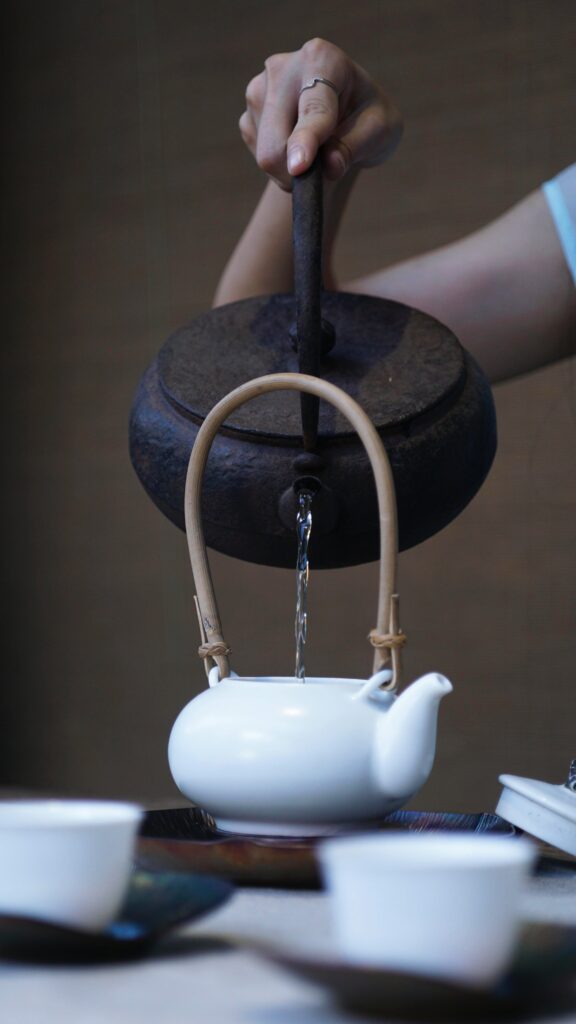Statistically in 2022, more than six billion kilograms of tea was consumed on a global level. It is relatively the highest consumed beverage following water.
Where Did Tea Come From?
Tea is produced by oxidization and distillation of plants. Historically, the most ancient record of benefits of taking tea was dated in China 2737 BC. An emperor of China is believed to have come upon the idea of tea when a leaf of Camellia sinensis dropped in his warm water cup.
Tea is categorized into different types determined by the level of oxidation it is exposed to. The main basic types of tea are green, floral and fermented tea (black, white, yellow, compressed and dark tea).

Health Benefits of Tea
Tea has always been known to have health benefits for mind and body. It is only a few decades back that the scientific world took notice of this beverage and started doing research on the compounds present in it to establish empirical and quantifiable results of these benefits.
Polyphenols, flavanols and catechins are the main compounds of tea which have anti-inflammatory, anti-oxidative properties and helps increase immunity. A large number of clinical researches have suggested the benefits of tea consumption in preventing cancer, cardiovascular diseases and mental health problems specifically depression, anxiety and stress. Tea consumption has both prompt and long-term advantages for the human body.

Tea for Mental Well-Being
It is evident from research that daily consumption of tea has anti–depressive effects in the users. They report less signs of psychological distress, anxiety and depressive moods as compared to non-users. In addition to that the anti-oxidative compounds in tea are suggested to provide protection to brain on a cellular level hence helping in prevention of cognitivedecline and neuro– degenerative conditions such as Alzheimer’s and Parkinson’s. Tea is also acknowledged for its nerve calming and mood boosting properties.
Following are a few teas known for their advantages for mental health:
- Chamomile: This popular tea with more than a million cups per day consumption has been one of the most ancient drinks with known benefits. It is distinguished for its sedating and calming effect. It is often used as a sleep-inducing agent and is recommended for individuals dealing with anxious states and sleep problems. Here are some more benefits of chamomile tea.
- Lavender: Clinical studies suggest having lavender tea reduces anxiety and has a positive effect on mood providing relief from depressive and low moods in its users.
- Peppermint: popular for its calming effects, peppermint tea is effective for helping with anxious states. It decreases stress hence aids with fatigue.
- Green tea: Incorporated with L-Theanine , an anxiety reducing compound this tea aidsin decreasing stress. Moreover, it is a popular option for increasing focus as it also contains caffeine which causes alertness. Read more here to learn some additional benefits of green tea.
- Lemon balm: it is a mood boosting tea, often used for reducing anxiety, depression and insomnia. Many studies have shown positive effects of using this tea. It enhances GABA levels a neurotransmitter that functions to regulate stress in the body.
- Ginseng: medicinal benefits for the body of ginseng tea have been established by research. However, new studies show it regulates stress in the body causing hormonal changes and provides relief from anxiety and depression due to hormonal dysregulation.
- Valerian root: known for its qualities such as sedation and sleep-induction it is often used for insomnia. It has also shown anxiolytic properties in few clinical trials.
Tea Consumption
It is to be noted that tea consumption should be done safely with starting a minimum number of cups per day and adding onto that gradually. One should avoid over consumption, be aware of their allergies if any and observant of their bodies how they respond to the intake. In case of any complication do not hesitate to reach out to a medical health practitioner.
Tea consumption has shown some promising mental health benefits and has been around from decades as a remedy. However, more empirical research and quantifiable data is required to establish it as a part of treatment for any mental condition. It aids as a supplementary factor and has proven benefits in reducing anxiety, stress, depression and sleep problems. Nevertheless it should not be considered the only treatment for serious mental health disorders.

References
https://www.healthline.com/health/anxiety/tea-for-anxiety#valerian
Yao, Y., Chen, H., Chen, L., Ju, S. Y., Yang, H., Zeng, Y., Gu, D., & Ng, T. P. (2021). Type of tea consumption and depressive symptoms in Chinese older adults. BMC geriatrics, 21(1), 331. https://doi.org/10.1186/s12877-021-02203-z
Shinjyo, N., Waddell, G., & Green, J. (2020). Valerian Root in Treating Sleep Problems and Associated Disorders-A Systematic Review and Meta-Analysis. Journal of evidence-based integrative medicine, 25, 2515690X20967323. https://doi.org/10.1177/2515690X20967323
Bazrafshan, M. R., Jokar, M., Shokrpour, N., & Delam, H. (2020). The effect of lavender herbal tea on the anxiety and depression of the elderly: A randomized clinical trial. Complementary therapies in medicine, 50, 102393.https://doi.org/10.1016/j.ctim.2020.102393
McKay, D. L., & Blumberg, J. B. (2006). A review of the bioactivity and potential health benefits of peppermint tea (Mentha piperita L.). Phytotherapy research : PTR, 20(8), 619–633. https://doi.org/10.1002/ptr.1936






